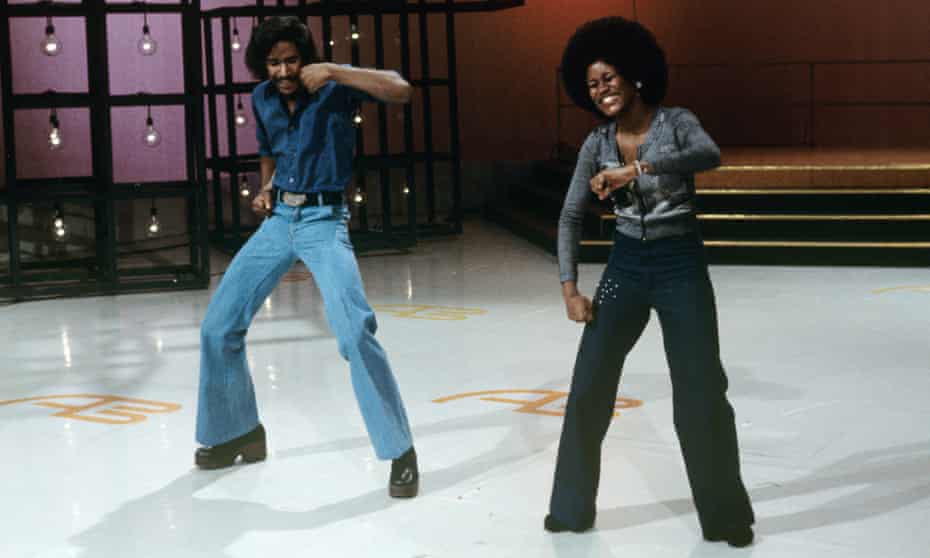When Cheryl Music stepped on to the all-black set of Soul Teach in 1976, she was fulfilled with a deathly silence that was adopted by a number of threats, then a female snarling: “Who does that superior yellow bitch think she is?” Two buddies from university experienced brought Song along to Don Cornelius’s groundbreaking Television display as something of a functional joke, assuming that she wouldn’t be picked mainly because of her Asian heritage. But Music – “the Asian lady with the very long hair” – went on to dance on the display for 14 years. “No make any difference what colour you are,” she says, “you’re just there to dance and have exciting.”
In those early times on Soul Coach, waacking – an improvised dance done to the conquer of disco that included martial arts things, immediate arm actions, poses and a celebrated mind-set – was starting off to go mainstream. As a straight Asian woman, Track experienced small in frequent with waacking’s LGBTQ+ origins, it staying an unapologetic dance born from oppression. But she cherished it nonetheless. “It was immediate, it was a sturdy motion and it was dramatic,” she states.
Pioneered by an outfit referred to as the Outrageous Waack Dancers – Tyrone Proctor, Jeffrey Daniel, Jody Watley, Sharon Hill, Cleveland Moses Jr and Kirt Washington – waacking built its way on to the demonstrate from the black and Latino homosexual golf equipment of Los Angeles. Quickly John Travolta was mimicking its moves in Saturday Night time Fever, even though Donna Summer time and Cicely Tyson executed them on phase.

But by the late 1980s, as the disco era arrived to an finish and Aids ravaged the queer group, waacking all but disappeared from well-liked culture. That is, until eventually the early 2000s, when it saw an unlikely resurgence thanks to “the father of waacking” Proctor, who died previous calendar year, and his mentee Princess Lockerooo. They travelled the world top workshops and judging competitions. In Asia, it truly caught on.
Nelson George, author of The Hippest Trip in The usa: Soul Educate and the Evolution of Tradition and Fashion, believes the dance morphed from a full-overall body affair to a midsection-up one simply because Proctor had harmed his hips from many years of dancing and commenced to instruct it differently. In spots like Hong Kong, Taiwan, Japan and Korea, rapid hand and arm movements predominate.
What ever it seems like, waacking is a form of escapism and a defiant rebuttal of conservative norms that is well suited to Asia, where LGBTQ+ legal rights are not what they are in the west. “The energy of waacking comes from the force,” claims Taiwanese waacker Akuma. It is danced by folks who have to conceal their legitimate selves in their each day lives, so when they have the prospect to be themselves in the club, “the electricity explodes”.
Hong Kong waacker Ryan keeps his sexuality concealed from the school where by he teaches for anxiety of attracting homophobic slurs. Waacking provides him a way to discover his sexuality in a town in which homosexual relationship nevertheless is not recognised. “In daily life, a lot of factors are not beneath your control,” he states. “There’s not a great deal leeway for you to categorical who you are mainly because you are expected to fulfil particular roles. But in a club or in a cypher session, I can really be myself, as feminine or captivating as I would like to be, devoid of judgment from other folks.”

By means of very simple, dynamic poses and arm drills, waackers aim on rhythm and obtaining a style to showcase their character. “When I dance other styles,” says Akuma, “it’s like residing in people’s shadow. When I dance waacking, I am celebrating myself and people today like me. In Asia, moms tell girls: ‘You have to be a woman and you have to be polite.’ And fathers inform boys: ‘You have to be a man, you can not cry or display your susceptible confront to the community.’”
The feeling of empowerment at waacking’s core resonates with cisgender girls in Taiwan, South Korea and Japan, far too. Chrissy Chou, Maya Chou, Monika Shin, Lip J and Ibuki Imata have amassed 1000’s of followers on Instagram with their strong poses and attitudes. If you search YouTube for waacking, you will locate a plethora of battles at festivals this sort of as Supernova, C’est la Waack, Waackers Night time and the All Asia Waacking competition, which ended up founded in the early 00s.
Waacking has also damaged no cost from the shackles of disco, acquiring impressed the choreography of this sort of K-pop functions as Chungha, Kara, Gugudan Oguogu and Two times. “Waacking emerged from homosexual tradition at a time when people today needed to cover their sexuality and character,” claims Yoon Ji, a waacker from Seoul. “They felt free of charge dancing to disco audio. Now it’s 2021 – but we nevertheless truly want to categorical ourselves.”
